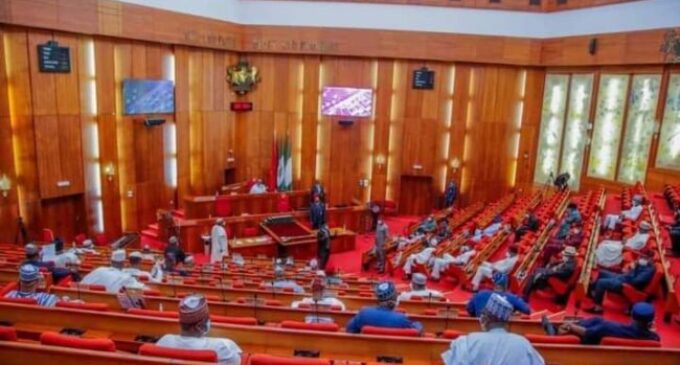Concerned Civil Society Organizations have called on the National Assembly to stop that move of manipulating the electoral amendment bill (2021).
This was contained in a release by the Civil Right groups titled “ELECTORAL ACT: TIME TO RESIST THE DANGEROUS MANIPULATION BY THE NATIONAL ASSEMBLY”. In the release, the groups warned the national assembly against the perceived attempt of manipulating the will of Nigerians in the electoral amendment bill that is expected to be passed by both chambers this week.
They pointed out that Some proposals canvassed by citizens were adopted in the Bill e.g., electronic voting, financial independence of the Independent National Electoral Commission (INEC), and new timelines for submission of list of candidates. However, there are discrepancies between the approved version of the Bill and the alleged final copy, where some key provisions have been manipulated.
“In the alleged final copy, some key priority amendments were rejected by the leadership of the National Assembly, e.g., electronic transmission of results has been prohibited (S.50(2)) and the limits on campaign expenses have been increased (S.88). We are also concerned that the National Assembly has rejected the proposal empowering INEC to review the declaration of scores and return of candidates made by a Returning Officer and determine that the declaration was made under duress or contrary to the provisions of the law (S.65). Following, the events of the 2019 general elections, we are convinced that INEC needs to have this power to prevent politicians from going through the backdoor to win election and steal electoral mandate at gun point!’’ the group disclosed.
While disclosing that the alleged final copy of the Electoral Amendment Bill, which they have reviewed, does not represent the interests of the Nigerian people, and therefore consider it a forged document that must not be substituted for our legitimate demands, they highlighted Five examples of discrepancies noted and summarized below:
| Issue | Approved Text | Forged Text |
| Release of INEC funds – Section 3(3) | To be released in yearly instalments starting two years before election and ending not later than 180 days to the election | To be released not later than one year before election (no provision for instalments) |
| Electronic Transmission of Results – Section 50(2) | Procedure for voting and transmission of results to be determined by INEC | Procedure for voting and results transmission to be determined by INEC, provided that transmission of results shall not be electronic |
| Declaration of Scores Under Duress – Section 65 | Decision of a Returning Officer on declaration of scores and return of candidate shall be final, provided that INEC can within 7 days review the declaration and determine that is was not made under duress or contrary to the provisions of the law | Decision of a Returning Officer on declaration of scores and return of candidate shall be final (no power of INEC to review) |
| Judicial Review of INEC Decision – Section 76 | INEC’s decision not to register a party can be challenged in court, provided that legal action is commenced within 14 days from the date of receipt of the decision | INEC’s decision not to register a party can be challenged in court, provided that legal action is commenced within 45 days from the date of receipt of the decision |
| Campaign Financing- Section 88 | Limits on campaign expenses: President N1B; Governor N200M, Senate N40M, House of Reps N30M, State House of Assembly N10M | Limits on campaign expenses increased as follows: President N15B; Governor N5B, Senate N1.5B, House of Reps N500M, State House of Assembly N50M |
Worried about the grave implications these high-handed manipulations and illegal actions will have on our Electoral Process, they called on Senate President Ahmed Lawan and Speaker of the House, Femi Gbajabiamila, to speak up clearly that they are not aware of these amendments and are not part of any attempt to subvert the voices of Nigerians.
They also urge Nigerians to stand up to resist this latest attempt by the National Assembly to manipulate the Electoral Act for self-perpetuation and self-interest and to ensure that this bill is not passed on Tuesday, July 6, 2021.






